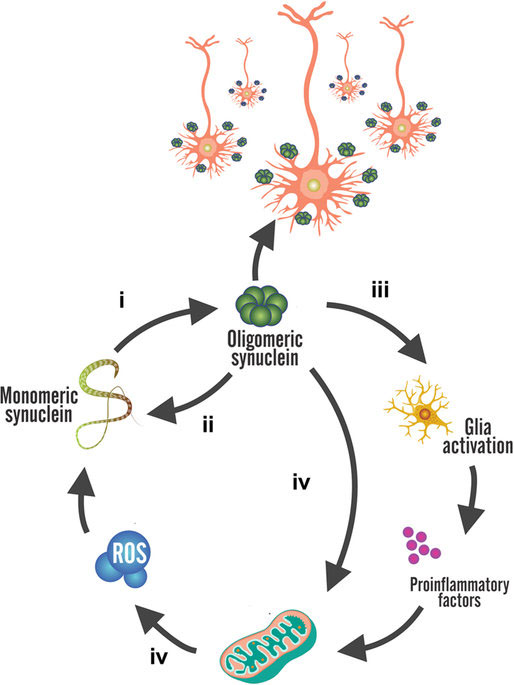Parkinson's disease (PD) is a common neurodegenerative disease. The death of nigrostriatal dopaminergic neurons, the reduction of dopamine (DA) secretion and the formation of Lewy bodies are important pathological features of Parkinson's disease. There are still no drugs that can effectively prevent the disease from developing. A study published in the Scientific Reports in February showed that a drug that has been used for more than half a century, doxycycline, may be able to treat Parkinson's disease at low doses. According to the authors, doxycycline reduces the toxicity of α-synuclein, which is mainly distributed in the presynaptic membrane of nerve cells and is a protein closely related to the development of Parkinson's disease. Under certain conditions, α-synuclein misfolds in the cells of the central nervous system to form Lewy bodies, which cause abnormal aggregation and accumulation, leading to cell damage and is considered to be one of the main causes of dopaminergic neuron death. Three Brazilian scientists from the University of São Paulo, Elaine Del-Bel, Leandro R. S. Barbosa and Rosangela Itri participated in the study. Del-Bel said: "We have obtained exciting data from mouse experiments, and hope that this neuroprotective effect can also be observed in humans. This treatment can prevent the progression of Parkinson's disease, we plan to soon Start clinical trials." Unexpected discovery The discovery occurred five years ago when Del-Bel's former student Marcio Lazzarini conducted a postdoctoral research at the Max Planck Institute in Germany. In a mouse experiment looking for a possible alternative treatment for Parkinson's disease, the team used the commonly used 6-hydroxydopamine (6-OHDA) to induce a Parkinsonian mouse model, 6-OHDA is a cause of dopaminergic neuronal death. Neurotoxin. "What surprised us was that only 2 of the 40 mice given 6-OHDA developed symptoms of Parkinson's disease, while the rest remained healthy," Del-Bel said. “A laboratory technician found that mice had eaten foods containing doxycycline, so we suspected it might have a protective effect on neurons.†The team repeated the experiment and set up a second group of animals, given a low dose of doxycycline by intraperitoneal injection instead of ingestion through the feed, and both experiments were ultimately successful. Understanding the mechanisms behind doxycycline neuroprotection is a recent research focus, and the research team recently collaborated with researchers in Argentina and France. Interaction of glial cells, mitochondria and α-synuclein Image credit: Scientific Reports Gelatin Size 00 Empty Capsule,Hard Empty Gelatin Capsules Size 00,Halal Certificated Vegetable Empty Capsules,Empty Separated Halal Gelatin Capsule Ningbo Jiangnan Capsule Co., Ltd. , https://www.ningbocapsule.com
